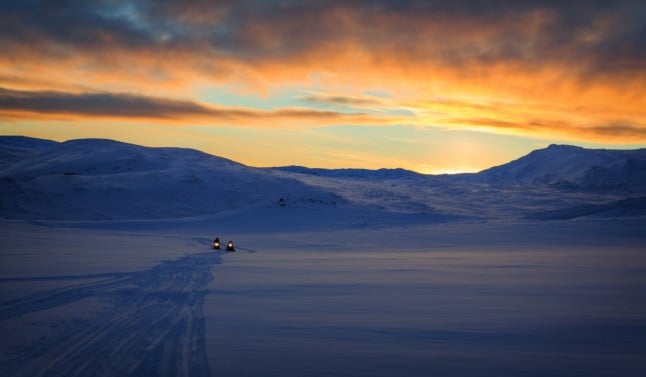In response to a call to nominate the areas they wanted to see opened to licensing, oil and gas companies suggested 181 blocks — "the highest ever number" — in the Barents Sea, out of the total 228 blocks suggested, the Norwegian petroleum and energy ministry said in a statement.
"Particular interest has been shown in our northernmost sea areas, confirming that the Barents Sea is an exciting and internationally attractive petroleum province," Petroleum and Energy Minister Ola Borten Moe said in the statement.
"This represents major opportunities for the entire region," he added.
The announcement came after Norwegian energy giant Statoil said it had made a major new discovery in the largely unexplored Barents Sea of two major deposits, Skrugard and Havis, believed to hold between 400 and 600 million barrels of oil equivalent.
Along with French groups Total and GDF Suez, Statoil is also already operating the Snoehvit gas field in the Arctic waters, where Italian Eni is also working the Goliat oil field.
The region is considered so promising that the oil and gas industry is considering building a 1,000-kilometre sub-sea pipeline, at an estimated cost of around 25 billion kroner ( $4.24
billion), to connect the new fields with the existing pipeline network further south.
A total of 37 companies had submitted proposals for licensing blocks in Norway's 22nd licensing round, the government said on Monday.
Based on the companies' suggestions, the petroleum and energy ministry aims to offer new licences during the first half of 2013.
Norway is the world's seventh largest oil exporter and ranks second in terms of natural gas exports.
However, its production of the black gold has been steadily declining since its peak in 2001, leading industry players to demand the opening of new prospecting areas in the Arctic, something environmentalists oppose.
According to the US Geological Survey, the Arctic is believed to hold 13 percent of the planet's undiscovered oil reserves and 30 percent of the undiscovered natural gas.


 Please whitelist us to continue reading.
Please whitelist us to continue reading.
Member comments